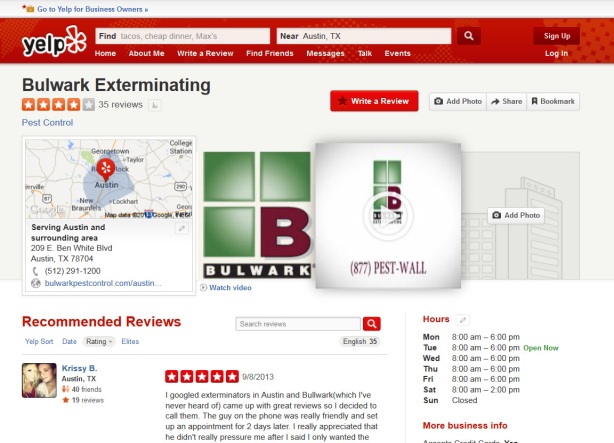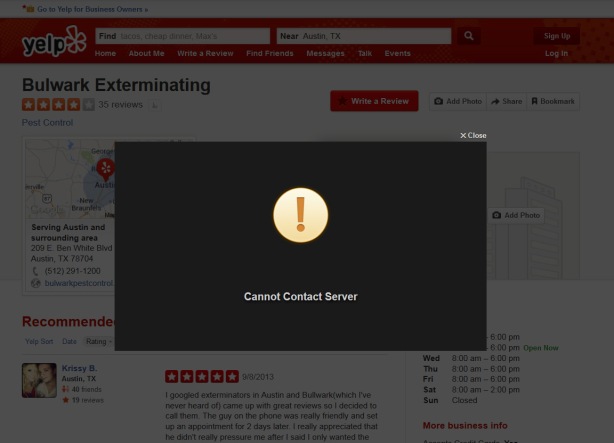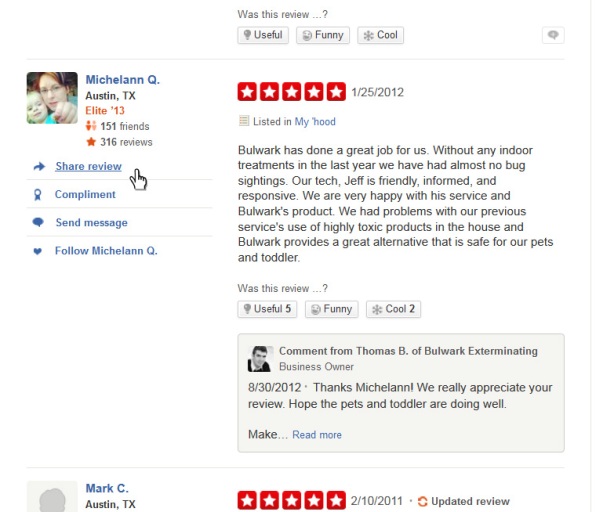A Fairfax, VA woman was recently ordered to pay a fine of $750,000 after a judge ruled she not only left a fictitious review on Yelp, but that it also cost the contractor she hired north of $300,000 in lost business.
In the summer of 2011, Jane Perez hired Christopher Dietz to perform construction on her home. Sounds simple enough, right? Wrong! According to Perez’s user reviews on Yelp and Angie’s List, Dietz actually damaged her home rather than repaired it. She also claims he billed her for work that he did not perform at all. Oh yeah, she also accused him of stealing jewelry because he was “the only one with a key”. And somewhere in between all that, she accused him of trespassing. And, (yes, there’s more) to top it all off, they are old high school classmates.

Dietz Development’s Yelp Profile
It’s nice to see that at least one of them graduated.
Classmates aside, the judge’s ruling poses an interesting precedent in the online review world going forward. Will more businesses try to defend themselves against what they feel are false reviews? Do they only have a legitimate defense if they can prove there are a significant amount of lost wages? What is considered admissible evidence for both parties? And what really happened in history class between Perez and Dietz?
Hind sight is always 20-20, but you have to hand it to Dietz for sticking up for himself and seeking damages. Would Dietz have sought retribution had there been no financial loss? Probably not. When it comes down to dollars, especially 300,000 of them, people will usually get serious about protecting it. It seems like the most realistic and easiest way to get rid of a negative review would be to ask the customers who actually like, and would recommend you, to write more positive reviews in order to bury the others.
At the very least a business owner should feel obligated to respond to any unfavorable post in a timely and professional manner. While that customer may have a legitimate argument, it bodes well for a business when it faces the music and appropriate, and publicly, addresses any concerns. If you’re a business, and going to compete in the big-kid world, you can’t be childish when a grumpy customer decides to throw a tantrum. Even a non-response can be viewed as more disingenuous than responding unprofessionally.
It is against rules to pay or offer incentives to customers to write positive reviews online. That certainly makes sense. If a customer is going to write a review it should be because they want to share their experience with your company, for better or worse. But I say business owners should be making their customers aware of their online profiles, even encouraging them to leave a review at their discretion.
As a word of advice, just assume that every single one of your customers intends to leave an online review of your business. Assume they are all Yelp addicts. Assume that right after you leave their house, or they walk out of your office, they plan on going straight to Google to leave a review on your profile. And, if you’ve never thought about it, assume that for one reason or another, their experience with your brand or employees is going to find its way on to either Facebook or Twitter. Probably both. (In fact, just right now on my Facebook timeline I spotted a picture that is going viral right now of a dentist that allowed his patient’s dog to be present in the room during the procedure. If there’s one thing I know about the animal kingdom, it’s don’t mess with dog lovers.)
But DO deal with angry Yelpers. That’s good business.
![]()










































